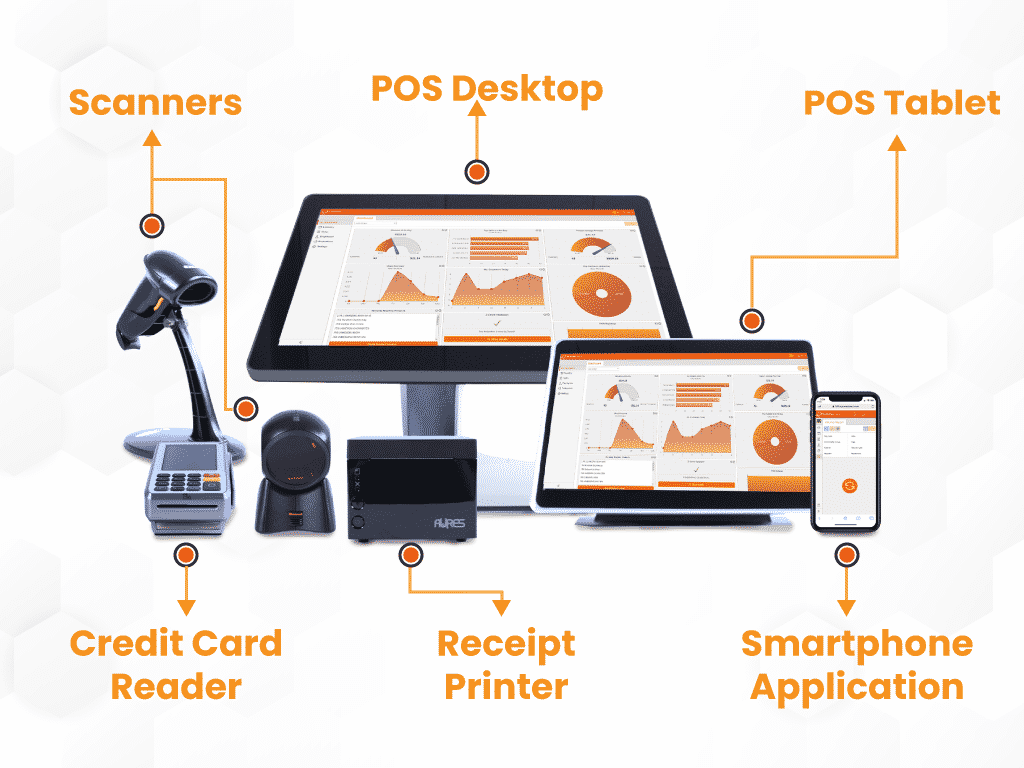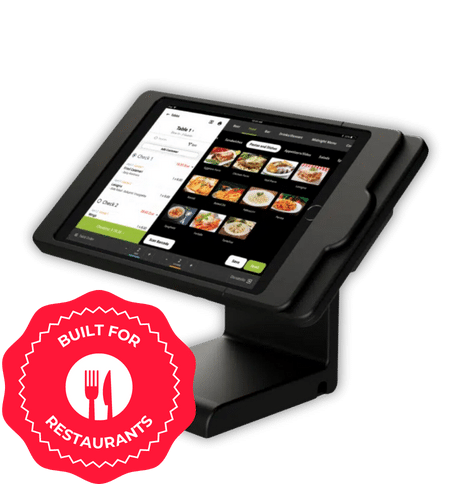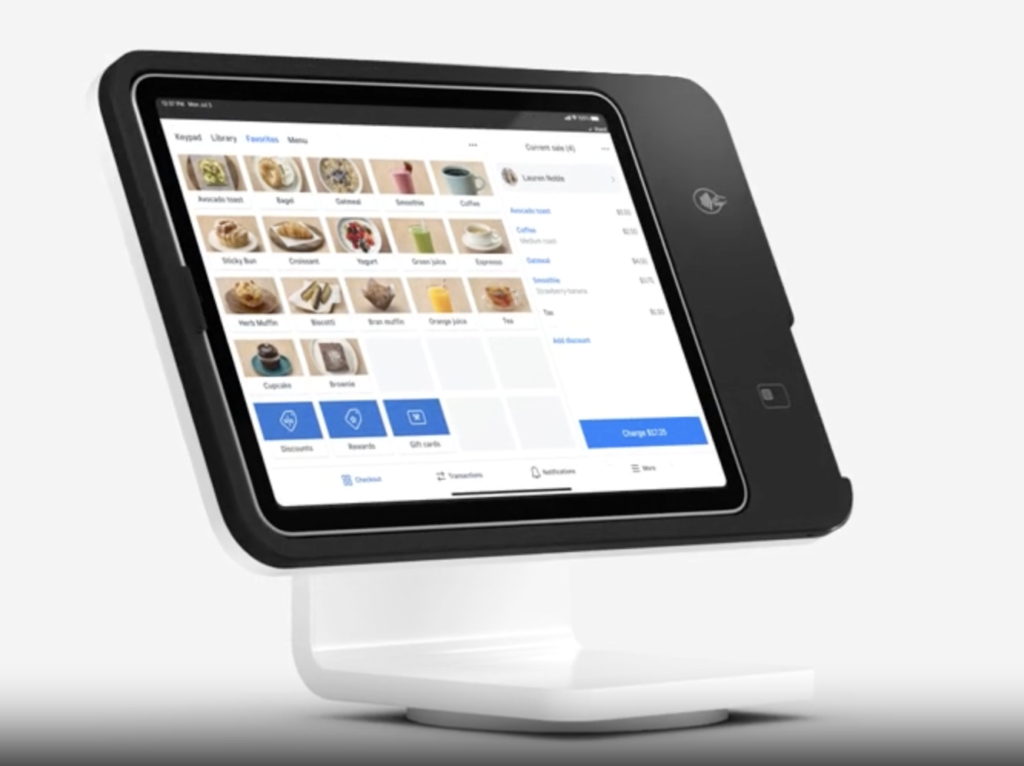Restaurant POS Software platforms vs. pen-and-paper: Which is more efficient?
Understanding the Value of POS Software in Modern Retail Workflow
In today's retail landscape, the duty of POS software program has actually become increasingly considerable. These systems have actually changed from basic cash money signs up to multifaceted tools that boost various facets of procedures. They not just improve purchases however likewise give insights that can shape organization methods. Recognizing just how these systems effect client experience and stock monitoring is important for any kind of store seeking to stay competitive. The effects of these developments warrant further expedition.
The Advancement of POS Software: From Deal Handling to Comprehensive Solutions
As retail settings advanced, so too did the capability of Factor of Sale (POS) software application, which changed from fundamental purchase handling systems to sophisticated, complete services. POS systems largely took care of sales transactions, managing cash money registers and printing invoices. However, with advancements in technology, these systems began integrating stock monitoring, consumer partnership administration, and sales analytics. Retailers identified the demand for seamless operations and real-time information, triggering the growth of cloud-based POS remedies that enabled remote access and improved scalability.Additionally, the increase of mobile commerce required POS systems to adjust, allowing purchases through tablet computers and mobile phones. This change not just streamlined operations but also enhanced reporting capacities, permitting sellers to make educated choices based on complete information understandings. Contemporary POS software has come to be important to retail strategy, offering as a multifunctional tool that sustains numerous operational elements past plain purchase handling.
Enhancing Client Experience Through Advanced POS Includes
While several stores concentrate on operational efficiency, advanced POS attributes progressively prioritize improving the client experience. Modern POS systems currently use performances such as mobile repayment options, customized promos, and customer commitment programs, which cultivate an even more interesting purchasing environment. By simplifying the checkout procedure, these systems minimize wait times, enabling customers to full purchases swiftly and efficiently.Additionally, integrated customer connection monitoring (CRM) attributes enable merchants to track acquiring habits and choices, helping with tailored advertising and marketing efforts. This personalization not just builds consumer commitment however additionally boosts total satisfaction.Moreover, progressed analytics provided by POS systems can help sellers understand client patterns and preferences, enabling them to make enlightened choices about item offerings and store formats. Eventually, the focus on customer experience through innovative POS includes not just satisfies modern consumer assumptions but additionally drives repeat business and increases profits for stores.
Streamlining Supply Monitoring With Integrated POS Systems
Integrated POS systems play a crucial duty in streamlining supply monitoring by automating processes that traditionally called for substantial hand-operated effort (Restaurant POS Software). These systems allow sellers to track inventory levels in real time, removing inconsistencies that usually develop from hands-on supply matters. With features such as barcode scanning and automated stock replenishment alerts, services can preserve optimal inventory levels without overstocking or stockouts.Furthermore, integrated POS systems promote precise projecting by evaluating historic sales data, allowing stores to make informed purchasing decisions. This predictive ability aids services adapt to transforming customer needs and seasonal trends more effectively.Additionally, the centralization of supply information throughout numerous sales channels boosts presence, making it possible for retailers to handle their stock much more successfully. Inevitably, the integration of POS systems right into supply management streamlines operations, reduces human error, and adds to boosted profitability
Real-Time Sales Tracking and Coverage for Informed Decision-Making
Accurate inventory management lays the foundation for efficient sales monitoring and reporting. Real-time sales tracking makes it possible for merchants to keep track of sales efficiency as it happens, supplying prompt insights right into consumer investing in patterns and fads. This ability enables businesses to respond swiftly to fluctuations sought after, maximizing supply levels and decreasing overstock or stockouts.Moreover, incorporated POS systems promote the generation of comprehensive records, highlighting crucial metrics such as sales by classification, period, and specific products. Such coverage capacities encourage merchants to make data-driven decisions, identifying effective strategies and areas requiring renovation.

The Role of POS Software Program in Client Partnership Management
POS software program plays a necessary role in enhancing customer relationship monitoring by making it possible for retailers to execute personalized advertising techniques. By analyzing consumer information, services can tailor promotions and interactions to meet specific preferences. In addition, these systems assist in the growth of enhanced loyalty programs that urge repeat company and strengthen consumer interaction.
Personalized Marketing Techniques
As stores progressively look for to improve consumer loyalty and interaction, personalized advertising approaches have become a crucial element of reliable customer connection monitoring. POS software application plays a vital function in this process by accumulating and evaluating client data, making it possible for merchants to customize advertising and marketing initiatives to specific choices and shopping behaviors. By leveraging insights from acquisition backgrounds, merchants can develop targeted promos and personalized interactions that reverberate with clients, cultivating a deeper connection. Furthermore, the integration of POS software with customer connection monitoring systems permits for smooth monitoring of client interactions, making sure that advertising approaches continue to be relevant and timely. This data-driven method not only improves consumer fulfillment however additionally motivates and drives sales repeat service, solidifying the store's market setting.
Enhanced Commitment Programs
Retailers are progressively acknowledging the importance of loyalty programs in cultivating long-lasting client connections and enhancing total interaction. POS software plays a crucial function in the development and monitoring of these programs, enabling retailers to track consumer actions, choices, and purchases properly. By leveraging data analytics, businesses can produce personalized benefits and incentives that resonate with specific consumers, therefore raising involvement in loyalty programs. In addition, POS systems enable smooth integration with electronic systems and mobile apps, helping with very easy access to rewards and promos. This not only improves client complete satisfaction but likewise drives repeat service. Inevitably, POS software encourages merchants to cultivate deeper links with their clients, changing periodic consumers right into faithful customers through targeted and significant involvement approaches.
Incorporating POS Systems With E-Commerce Platforms for Omnichannel Success
To accomplish real omnichannel success, visit smooth combination in between point-of-sale (POS) systems and shopping systems is essential. This combination enables sellers to unify their inventory management, making sure that product accessibility is precisely mirrored across both online and physical stores. Clients gain from a natural purchasing experience, where they can quickly switch over in between channels without running into discrepancies.Furthermore, integrated systems promote real-time information sharing, making it possible for companies to evaluate customer behavior and preferences more effectively. This data-driven approach allows stores to tailor advertising methods and optimize supply degrees, inevitably boosting client complete satisfaction and driving sales.Additionally, the capability to procedure transactions throughout systems streamlines procedures, decreasing the risk of mistakes and improving total effectiveness. As retailers significantly embrace omnichannel strategies, the integration of POS systems with shopping platforms continues to be a vital aspect in accomplishing lasting development and keeping competitive benefit in the vibrant retail landscape.

Future Trends in POS Technology and Their Effect on Retail Procedures
As retail operations progress, future fads in POS modern technology are readied to improve the landscape substantially. The rise of cloud-based solutions, technologies in mobile POS systems, and the benefits of AI combination are among the essential developments anticipated to enhance performance and client experience. These developments assure to streamline processes and promote a more dynamic retail environment.
Cloud-Based Solutions Surge
With the raising reliance on innovation, cloud-based POS solutions are changing retail operations by offering boosted versatility and scalability. These systems enable retailers to accessibility real-time data from anywhere, helping with better decision-making and customer support. By leveraging cloud framework, organizations can minimize upfront prices related to equipment and software setups while making certain seamless updates and maintenance. Furthermore, cloud-based options support multi-location monitoring, enabling retailers to synchronize inventory and sales throughout various outlets effortlessly. This versatility is crucial in today's fast-paced market, where customer choices shift rapidly. As more merchants take on these services, they can anticipate improved operational performance and a much more receptive method to market needs, ultimately improving consumer fulfillment and loyalty.
Mobile POS Innovations
The development of retail modern technology remains to shape operations, especially with the increase of mobile POS technologies. These systems allow stores to process transactions anywhere within the store, improving consumer engagement and enhancing check out processes. Mobile POS options improve inventory monitoring by allowing immediate accessibility to stock levels, helping team help clients extra efficiently. On top of that, they help with tailored purchasing experiences via integrated consumer data and loyalty programs. As mobile phones end up being progressively innovative, merchants are taking on features such as contactless repayments and digital invoices, furthermore optimizing the purchasing trip. The change in the direction of mobile POS not just enhances operational efficiency yet additionally aligns with the growing consumer choice for comfort, making certain that stores remain competitive in a rapidly evolving market.
AI Combination Advantages
AI integration stands for a transformative jump in POS modern technology, providing retailers a click resources myriad of benefits that boost operational performance and Restaurant POS Software client experience. By leveraging equipment discovering algorithms, stores can analyze acquiring patterns and enhance inventory monitoring, minimizing waste and stockouts. Additionally, AI-powered analytics provide customized marketing referrals, allowing targeted promos that enhance consumer interaction and loyalty (Restaurant POS Software). In addition, chatbots and virtual aides enhance customer service, permitting quicker resolution of queries and boosting the overall purchasing experience. Anticipating analytics can additionally anticipate demand trends, allowing smarter staffing and resource allotment. Inevitably, the assimilation of AI in POS systems empowers merchants to make data-driven choices, cultivating an one-upmanship in an ever-evolving retail landscape
Frequently Asked Questions
What Are the Prices Connected With Carrying Out POS Software Program?
The costs connected with implementing POS software application can include software program licensing charges, hardware expenditures, setup fees, training expenses, and ongoing upkeep. Each factor contributes to the total financial investment necessary for a successful execution.
Just How Can Tiny Retailers Take Advantage Of POS Equipments?

What Equipment Is Required for a POS System?
A common POS system requires essential hardware parts, consisting of a touchscreen monitor, cash money cabinet, barcode scanner, invoice printer, and payment terminal. These aspects interact to help with efficient transaction processing and supply management for merchants.
Can POS Software Be Custom-made for Certain Retail Demands?
POS software application can indeed be tailored to fulfill certain retail needs. This versatility allows organizations to tailor functions, interfaces, and coverage devices, enhancing functional efficiency and offering a more individualized experience for both staff and customers.
How Safe Is Consumer Data in POS Equipments?
The safety and security of client information in POS systems varies widely. Lots of systems carry out encryption, safe accessibility controls, and routine updates, but vulnerabilities can still exist, requiring recurring vigilance and positive procedures from stores to secure delicate details. By streamlining the check out procedure, these systems reduce wait times, allowing consumers to total deals quickly and efficiently.Additionally, integrated customer relationship administration (CRM) features enable merchants to track buying actions and preferences, helping with customized marketing initiatives. As stores significantly seek to enhance customer commitment and interaction, personalized advertising and marketing approaches have emerged as a vital element of reliable consumer connection management. Furthermore, the combination of POS software application with customer connection monitoring systems enables for seamless monitoring of client interactions, making sure that advertising and marketing approaches stay appropriate and timely. Customers profit from a cohesive purchasing experience, where they can easily switch over in between networks without experiencing discrepancies.Furthermore, incorporated systems help with real-time data sharing, making it possible for companies to analyze client habits and choices more properly. Little stores can profit from POS systems with enhanced transaction effectiveness, streamlined supply monitoring, and improved consumer understandings.